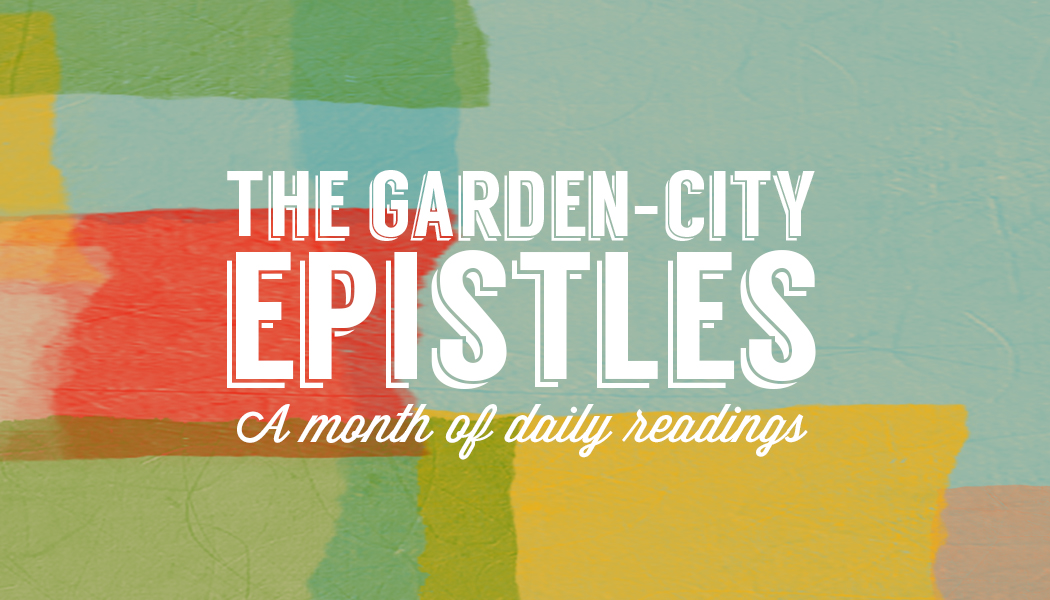This letter is for Leeann Yamakawa, whom I always mistakenly call “Liz” but who never lets me get away with it. Leanne works in government.
You’re tired of fixing broken things, aren’t you? Tired of ceaseless repair and ceaseless criticism? Tired of being exhausted and blamed for problems you didn’t create and situations you shouldn’t be responsible to fix?
In some ways, your life must feel like a city street in mid-Michigan, constantly in need of patchwork repair. You’ve got weather damage from the hot-and-cold attitudes of the people around you, and you feel like you’ve been run over by a ten-ton truck. Over and over. And over.
But this line of thinking leads me to a curious fact about heaven. Have you ever wondered why heaven has paved roads?[1] We don’t know what means of transportation there will be in heaven, whether delivery-angel or high-speed public cherubim, but for there to be roads, and for those roads to be paved, it must mean God has given some thought to how the city is laid out, to the ways the city is supposed to work, and to the means by which people are meant to get around.
I recently went home to Vancouver to visit my parents. As you may recall, the 2010 Winter Olympics were held in that fine city, and the changes have been spectacular—new bridges, wider roads, bicycle lanes downtown, better freeways, etc. In order to win the Olympic bid, the city of Vancouver had to beef up its infrastructure so it could support a much larger temporary population.
As a longtime Vancouverite, I was blown away by the difference these changes made in the livability and enjoyability of an already livable and enjoyable town. I could get anywhere I wanted in half the time I was used to, and most changes had been made with aesthetic considerations given strong weight—everywhere there were new vistas, new parks, and new green spaces making it easy for people to gather, relax, or meet up.
Infrastructure gives shape and power to humanity’s efforts, thus doing the original work God mandated of drawing together the resources of Creation, bringing wise order to the garden, and releasing human potential. That’s why cities function as the engines of human flourishing. They drive us together and they drive us faster forward. They are competitive arenas that place us near others who are smarter than we are, more skilled than we are, and more ambitious than we are. Cities force us to become better versions of ourselves in order to keep pace with those next door.
Many have bemoaned this competitive environment—and there can be real dangers; however, we shouldn’t overlook the fact that if I’m allowed to coast, I won’t ever find true meaning or satisfaction in my work. I need other people to push me, to encourage me, and to demonstrate for me what can actually be done.
When you gather a collection of highly competitive people, not only are you fueling the engines of urban development, but you are also multiplying those engines. Your work isn’t just about getting one or two people to put their best foot forward, but about seeing what happens when their combined horsepower is unleashed on shared projects, with shared vision, telling the stories of our community.
My point is this: the work you do in government putting our city together makes a huge difference. Government jobs are constantly scrutinized, and government employees are lambasted, stereotyped as lazy and incompetent. But not you. You’ve been working hard for many years, striving to make our city a better place to live. You’ve suffered indignities at the hands of people less intelligent than you, with less education than you, and fundamentally less concerned with the welfare of our city than you.
And you have done well.
[1] Revelation 21.21.
fossores
Related posts
Categories
Category Cloud
Tag Cloud
Recent Posts
- Victors and Victims November 6, 2018
- 3 Hacks for Happiness October 29, 2018
- Hope Against Death September 20, 2018
- The Shape Of The Cross September 19, 2018


